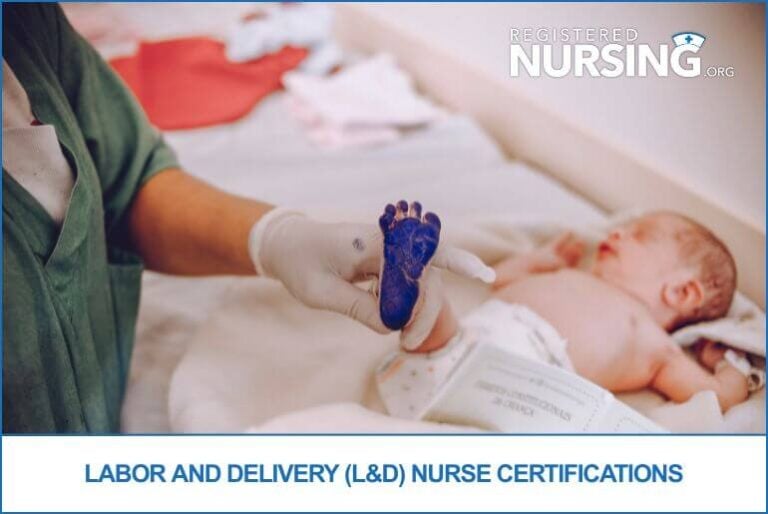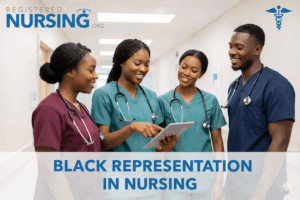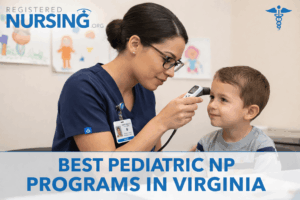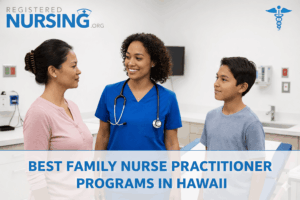Labor and Delivery (L&D) Nurse Certifications
- Why Certifications Matter in Labor and Delivery Nursing
- Essential Certifications for L&D Nurses
- Deep Dive: Most Popular L&D Certifications
- How to Choose the Right Certification
- How to Prepare for Certification Exams
- Continuing Education and Career Growth
- Start Advancing Your L&D Career Today
- Sources
- Latest Articles & Guides

Labor and delivery (L&D) nurses work on the front lines of one of healthcare's most dynamic and meaningful specialties—helping families through childbirth and ensuring the safety of both mothers and newborns. With maternal and women's health becoming a national priority and birth settings growing more complex, the expectations placed on L&D nurses have never been higher.
Certifications are an essential part of standing out and staying current in this demanding field. They not only reflect your clinical expertise and commitment to excellence, but also unlock new roles, boost your confidence, and signal to employers that you're equipped for the challenges of modern obstetric care. According to the National Center for Biotechnology Information, hospitals with a higher percentage of specialty-certified nurses tend to report improved patient outcomes and higher job satisfaction (NCBI). For nurses looking to advance in labor and delivery, earning specialized certifications is a strategic—and often necessary—step forward.
In this guide, respected labor and delivery certifications are explored in detail, including what they involve and how to choose and prepare for them. Whether you’re a new nurse or a seasoned professional ready for growth, there’s a credential to help deepen your knowledge, strengthen your practice, and reach your career goals.
Learn more about nursing certifications.
Why Certifications Matter in Labor and Delivery Nursing
L&D units can be unpredictable—managing normal deliveries, obstetric emergencies, cesarean sections, and postpartum care, sometimes all within the same shift. Certifications equip nurses to handle this wide range of scenarios with confidence and advanced clinical judgment.
Employers often prefer or require specific certifications to meet hospital accreditation standards, reduce risk, and improve patient outcomes. Nurses who are certified tend to demonstrate greater clinical accuracy and professional leadership. In fact, certified nurses are often considered for mentorship roles, educator positions, and charge nurse responsibilities.
For patients and families, knowing that their nurse has credentials like RNC-OB or NRP can offer peace of mind during vulnerable moments. These certifications show that you’re not only licensed but trained and tested in the specific competencies needed in labor and delivery.
Essential Certifications for L&D Nurses
There are several certifications designed specifically for nurses working in labor and delivery settings. Each focuses on different aspects of maternal and newborn care. Here's a snapshot of the most relevant credentials:
| Certification | Issuing Body | Focus Area | Eligibility | Renewal |
| RNC-OB | NCC | Inpatient obstetrics | RN license + 2,000 hours L&D experience | Every 3 years (CE + assessment) |
| C-EFM | NCC | Electronic fetal monitoring | RN license + fetal monitoring experience | Every 3 years (CE + assessment) |
| NRP | AAP | Neonatal resuscitation | Open to RNs and healthcare providers | Every 2 years (skills + online exam) |
| STABLE | STABLE Program | Post-resuscitation and pre-transport stabilization | RN license or healthcare role | Typically every 2 years |
| BLS/ACLS | AHA | Life support and emergency care | Required for all clinical RNs | Every 2 years |
These certifications are not only relevant but often expected in many hospitals, especially Level II or III maternity centers.
Deep Dive: Most Popular L&D Certifications
RNC-OB (Inpatient Obstetric Nursing)
Offered by the National Certification Corporation (NCC), this credential is ideal for experienced labor and delivery nurses. It covers antepartum, intrapartum, postpartum, and newborn care in hospital settings. Nurses need at least 2,000 hours of recent experience in L&D before sitting for the exam.
C-EFM (Electronic Fetal Monitoring)
Also from the NCC, the C-EFM certification validates a nurse's skill in interpreting fetal heart rate patterns, assessing maternal-fetal status, and responding to signs of distress. It’s especially useful for nurses working in high-risk pregnancy units or labor triage.
NRP (Neonatal Resuscitation Program)
Developed by the American Academy of Pediatrics (AAP), NRP teaches evidence-based techniques for managing newborns who require resuscitation. It's often required for nurses in delivery rooms or NICUs and involves both a written exam and hands-on simulation.
STABLE Program
The STABLE Program focuses on post-resuscitation care and stabilizing newborns before transport to a higher-level facility. This is a valuable addition for nurses who support critical care teams or work in facilities without onsite NICUs.
BLS and ACLS
Basic Life Support (BLS) and Advanced Cardiovascular Life Support (ACLS) certifications, offered by the American Heart Association, are standard for all RNs, but they're especially vital in emergency-prone areas like labor and delivery.
How to Choose the Right Certification
The right certification depends on where you are in your nursing journey and where you want to go. Here are some factors to consider:
- New to L&D? Start with NRP and BLS to meet hospital requirements.
- Mid-career L&D nurse? RNC-OB and C-EFM offer professional credibility and expand your clinical knowledge.
- Looking to specialize or lead? Add STABLE or pursue multiple certifications for a comprehensive skill set.
Ask your unit manager which certifications are prioritized at your facility, and consider how each credential aligns with your long-term goals. For example, a nurse aiming to become a perinatal educator might benefit from both RNC-OB and C-EFM.
Explore all of these pathways in more depth through the Nursing Certifications Guide.
How to Prepare for Certification Exams
Preparing for a certification exam requires time, focus, and the right study tools. Here are steps to set yourself up for success:
- Use official exam guides provided by the certifying organization.
- Take practice exams to identify strengths and gaps.
- Join study groups or take review courses—many employers offer them onsite or will reimburse costs.
- Plan your study time over 6–12 weeks to avoid cramming.
Costs vary by credential, but range from $100–$350. Check with your hospital's education department for possible discounts or reimbursement options.
Continuing Education and Career Growth
Most certifications must be renewed every two to three years and require a combination of continuing education (CE) hours and a recertification exam or self-assessment. Maintaining these credentials shows your ongoing commitment to excellence and ensures you’re keeping pace with changes in best practices.
Certifications can also serve as stepping stones to advanced roles like:
- Certified Nurse Midwife (CNM)
- Clinical Nurse Specialist (CNS) in perinatal care
- Nurse Educator or Instructor
If you plan to pursue graduate education, these credentials can enhance your application and demonstrate your dedication to maternal-infant health. Visit the Nursing Specialties Directory to explore advanced roles and related paths.
Start Advancing Your L&D Career Today
Labor and delivery nursing is both a calling and a clinical specialty. Earning certifications in this field helps you deliver safer, higher-quality care—while opening doors to leadership, advanced roles, and personal growth.
Whether you're looking to qualify for a new position, expand your knowledge, or better serve families during childbirth, investing in professional certification is a powerful step forward. Explore nursing certifications, find training programs near you, and learn about state licensure to start your journey today.
Sources
- National Certification Corporation (NCC)
- American Academy of Pediatrics (AAP)
- STABLE Program
- American Heart Association (AHA)
Latest Articles & Guides
One of the keys to success as a registered nurse is embracing lifelong learning. Our articles and guides address hot topics and current events in nursing, from education to career mobility and beyond. No matter where you are on your nursing journey, there’s an article to help you build your knowledge base.
Browse our latest articles, curated specifically for modern nurses.



